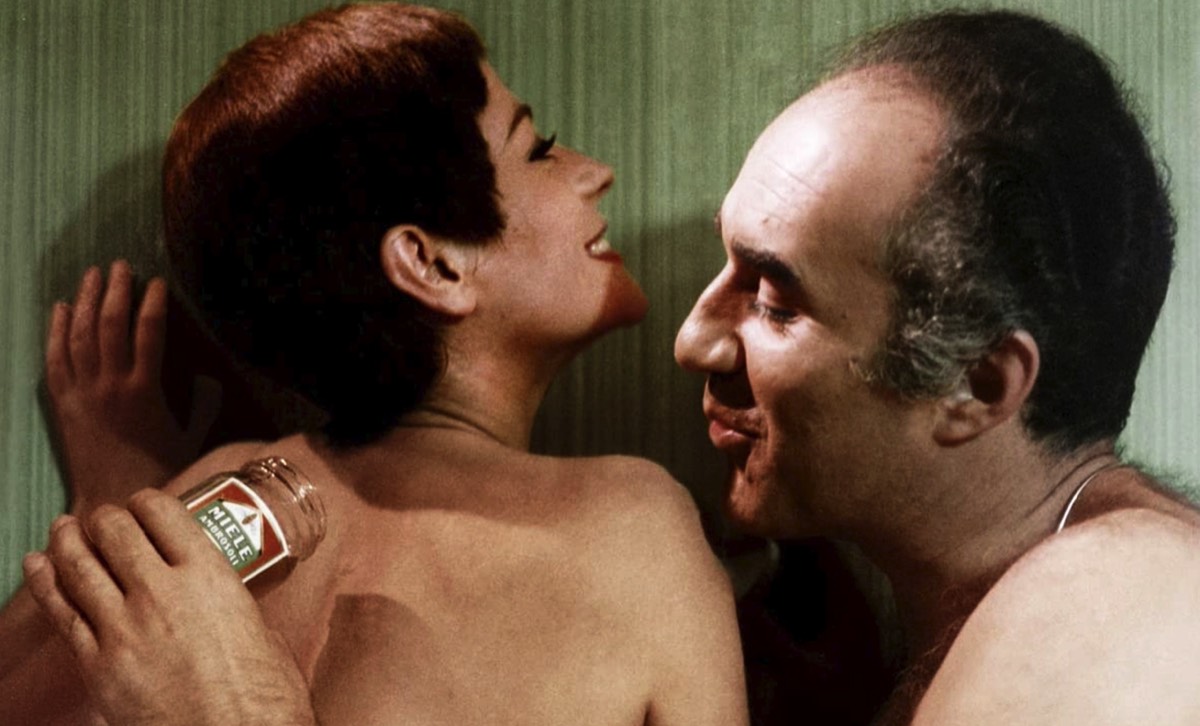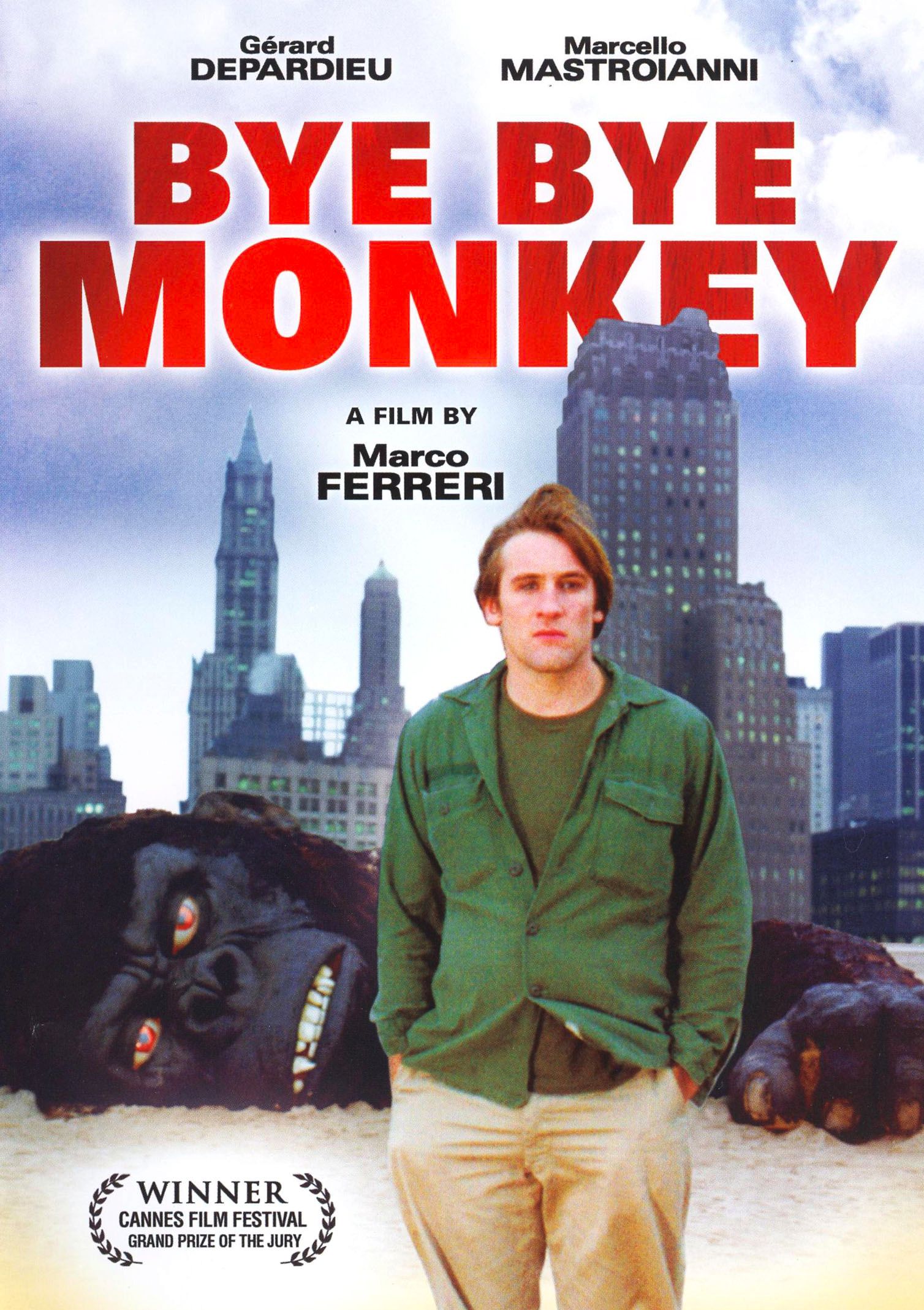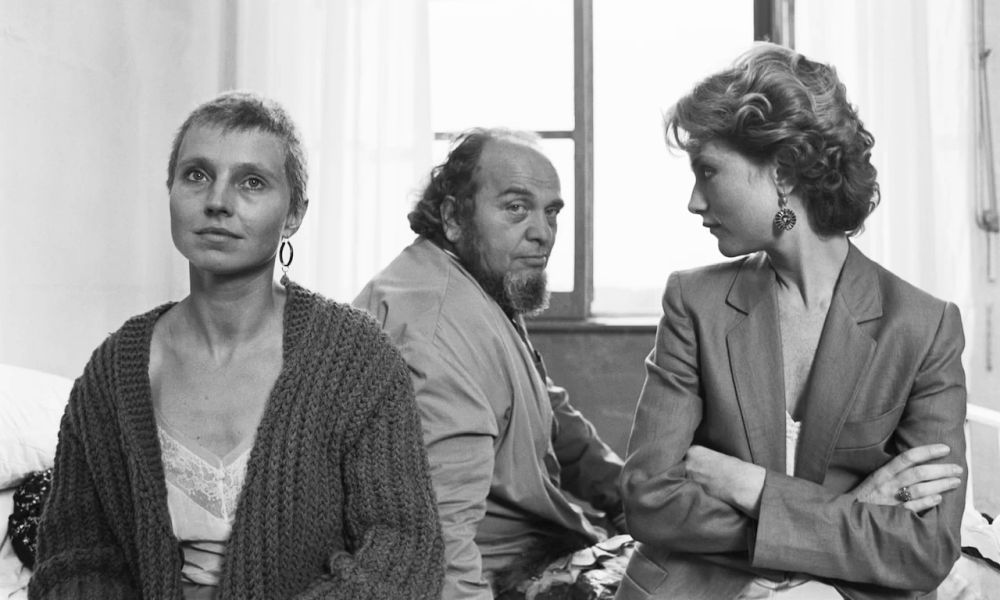"Often teeming with graphic sex, nihilism, violence and perversion, his movies are profoundly ambivalent: exhibiting a simultaneous compulsion and revulsion for sex, food and other essential pleasures; at once attacking bourgeois values (marriage, family, fidelity) and lamenting their demise; both observing and internalizing the resentful misogyny of emasculated man in the age of feminism." - Jessica Winter (The Rough Guide to Film, 2007)
Marco Ferreri
Director / Screenwriter / Actor / Producer
(1928-1997) Born May 11, Milan, Lombardy, Italy
(1928-1997) Born May 11, Milan, Lombardy, Italy
Key Production Countries: Italy, France, Spain
Key Genres: Comedy, Drama, Satire, Comedy Drama, Black Comedy, Urban Drama
Key Collaborators: Rafael Azcona (Screenwriter), Ugo Tognazzi (Leading Actor), Teo Usuelli (Composer)
Philippe Sarde (Composer), Michel Piccoli (Leading Actor), Mario Vulpiani (Cinematographer), Ruggero Mastroianni (Editor), Marcello Mastroianni (Leading Actor), Ornella Muti (Leading Actress), Dante Ferretti (Production Designer), María Luisa Ponte (Character Actress), Gerard Depardieu (Leading Actor)
Key Genres: Comedy, Drama, Satire, Comedy Drama, Black Comedy, Urban Drama
Key Collaborators: Rafael Azcona (Screenwriter), Ugo Tognazzi (Leading Actor), Teo Usuelli (Composer)
Philippe Sarde (Composer), Michel Piccoli (Leading Actor), Mario Vulpiani (Cinematographer), Ruggero Mastroianni (Editor), Marcello Mastroianni (Leading Actor), Ornella Muti (Leading Actress), Dante Ferretti (Production Designer), María Luisa Ponte (Character Actress), Gerard Depardieu (Leading Actor)
"Former production manager on Italian films of the early 1950s who began his directing career in Spain. Ferreri's films are characterized by an absurd, misanthropic sense of humor as exemplified in his award-winning The Wheelchair (1959)… His exposés of contemporary middles-class mores, and especially sexual relations, continued through the 1960s and 70s with films such as The Conjugal Bed (1963), Dillinger is Dead (1968) - considered mis masterpiece my most critics - and the notorious La Grande Bouffe (1973), in which a group of bored people literally eat themselves to death." - The Virgin International Encyclopedia of Film, 1992
"Ferreri saw himself as a simple, linear filmmaker who “showed things as they are,” earning him piles of scandal. He was perhaps the last Italian director capable of shocking the bourgeoisie with non-titillating nudity and a casual acceptance of the sexual mores of his time, but even more with his non-conformist way of thinking and seeing the world. His vision bypassed the Marxist ideology prevalent at the time and ridiculed leftism." - Deborah Young (The Hollywood Reporter, 2017)

Dillinger is Dead (1969)
"Lived in Spain for a while where he made three films, the best known being The Wheelchair (1960), a black comedy in the Buñuel vein. His attraction for the grotesque continued with The Conjugal Bed (1963) and The Ape Woman (1964), misogynistic and heartless comedies… In The Last Woman (1976) the hero castrates himself with an electric carving knife, another example of Ferreri's crude symbolism." - Ronald Bergan (A-Z of Movie Directors, 1983)
"Marco Ferreri was simply the most punk Italian filmmaker of his generation. A cine-provocateur of the highest order, Ferreri developed an oeuvre that is one of the most eclectic and surprising in all of Italian cinema, composed largely of black-as-night social satires and uncannily affecting dramas. From his earliest features—produced in Spain—to the vital skewerings of the European bourgeoisie he made upon returning for a long, prolific run in the Italian film industry (such as the 1969 Dillinger is Dead and the 1973 La Grande Bouffe), Ferreri’s films take a delirious and critical view of the times in which he lived and worked and remain some of the funniest, darkest, and most thought-provoking works of their era." - Film at Lincoln Center, 2023
"Italian director who also worked in Spain and France. In Italy, Ferreri began working in advertising and film production and then experimented with newsreels. While selling film equipment in Spain, he met the comedy writer Rafael Azcona, who was to contribute to many of his films. Two of his features became milestones of the Spanish cinema: El Pisito/The Little Flat (1958) and El Cochecito/The Wheelchair (1960)… Ferreri split the rest of his career between Italy and France, producing one of the most original and disturbing bodies of work of the European art cinema of the 1960s and 1970s, a startling blend of socio-political critique (sex, consumerism, alienation), black humour and misogyny." - Peter W. Evans & Paolo Mereghetti (Encyclopedia of European Cinema, 1995)
"Eight of his films premiered in competition in Cannes and The House of Smiles (1991) won the Golden Bear in Berlin, but Italian director Marco Ferreri has often been overshadowed by such contemporaries as Antonioni, Fellini, and Pasolini." - David Hudson (The Criterion Collection, 2023)
"No one was more demanding nor more allegorical than he in showing the state of crisis of contemporary man." - Gilles Jacob, 1997
Selected Filmography
{{row.titlelong}}
Marco Ferreri / Fan Club
Filipe Furtado, Aleksandr Molochnikov, Miljenko Skoknic, Nanni Moretti, Mo Abdi.
Filipe Furtado, Aleksandr Molochnikov, Miljenko Skoknic, Nanni Moretti, Mo Abdi.
"Fan Club"
These film critics/filmmakers have, on multiple occasions, selected this director’s work within film ballots/lists that they have submitted.
These film critics/filmmakers have, on multiple occasions, selected this director’s work within film ballots/lists that they have submitted.


